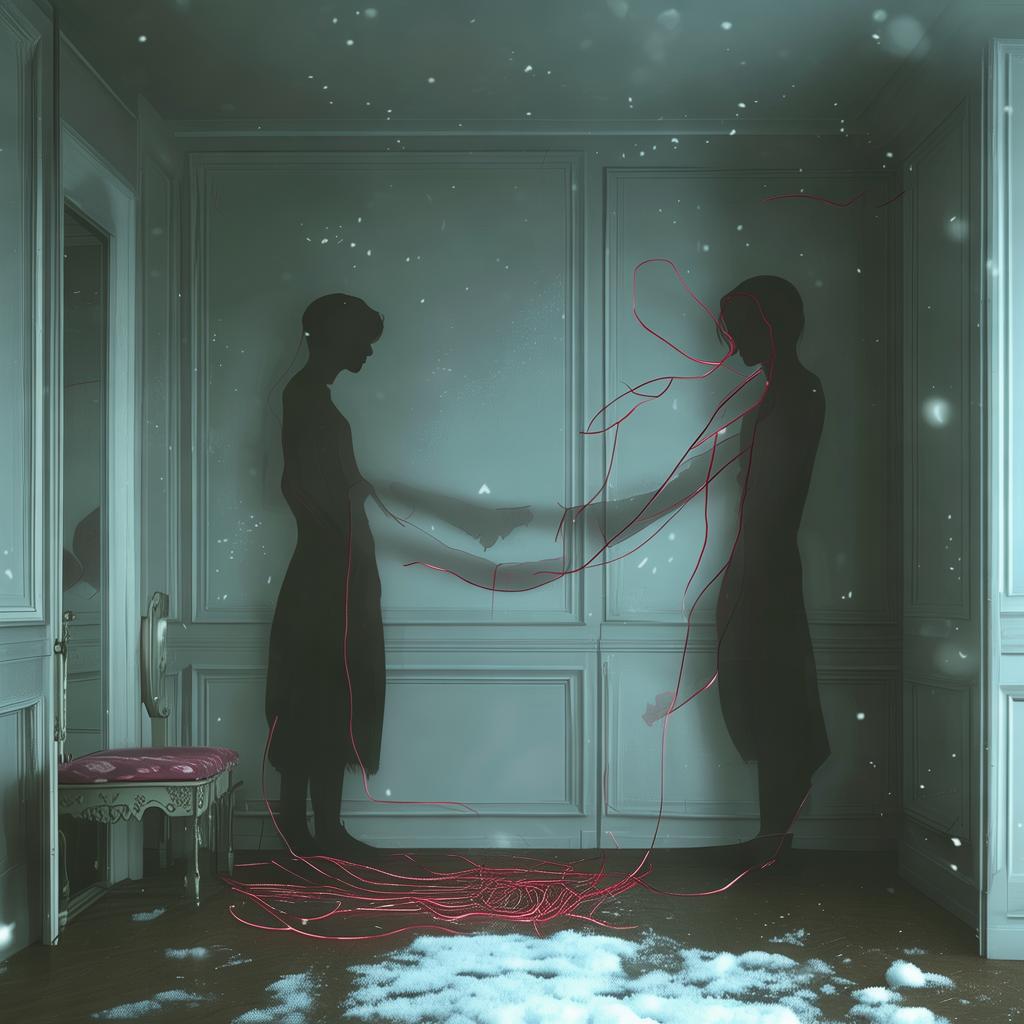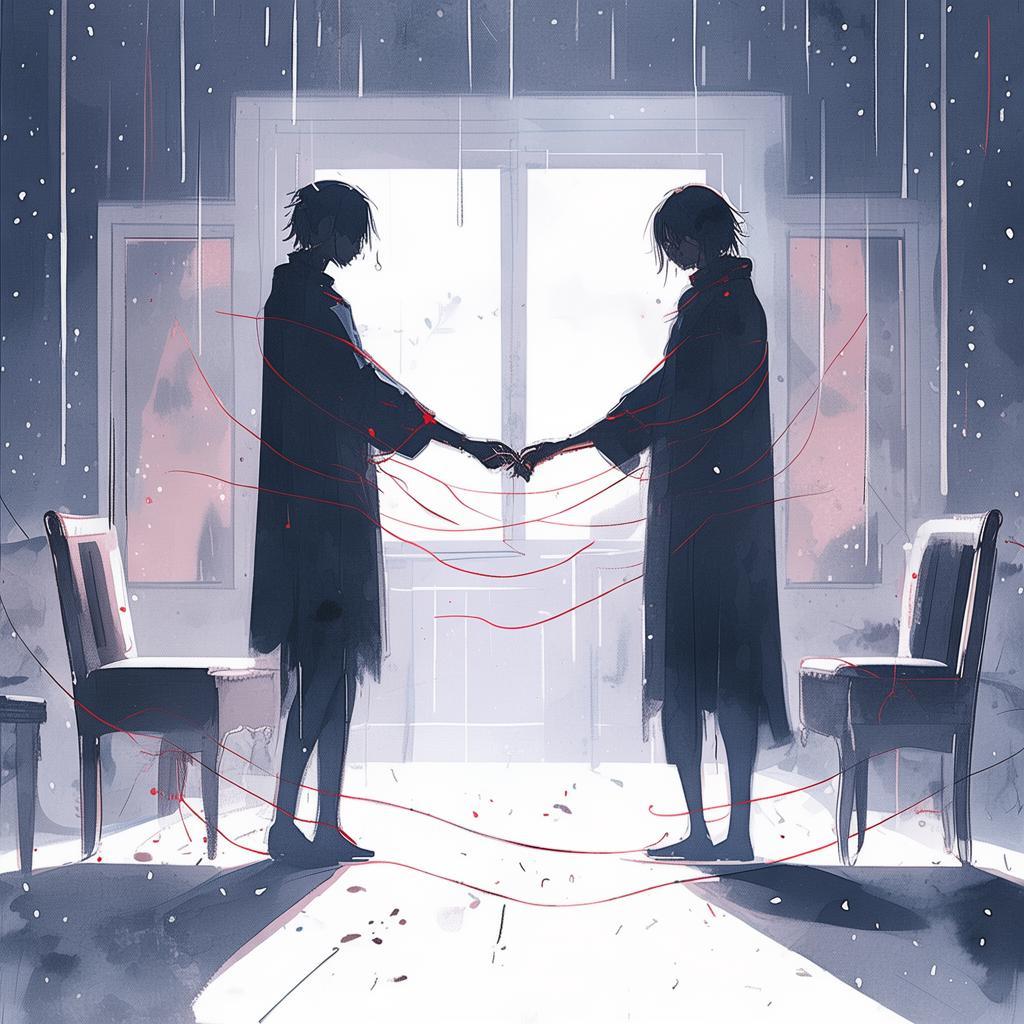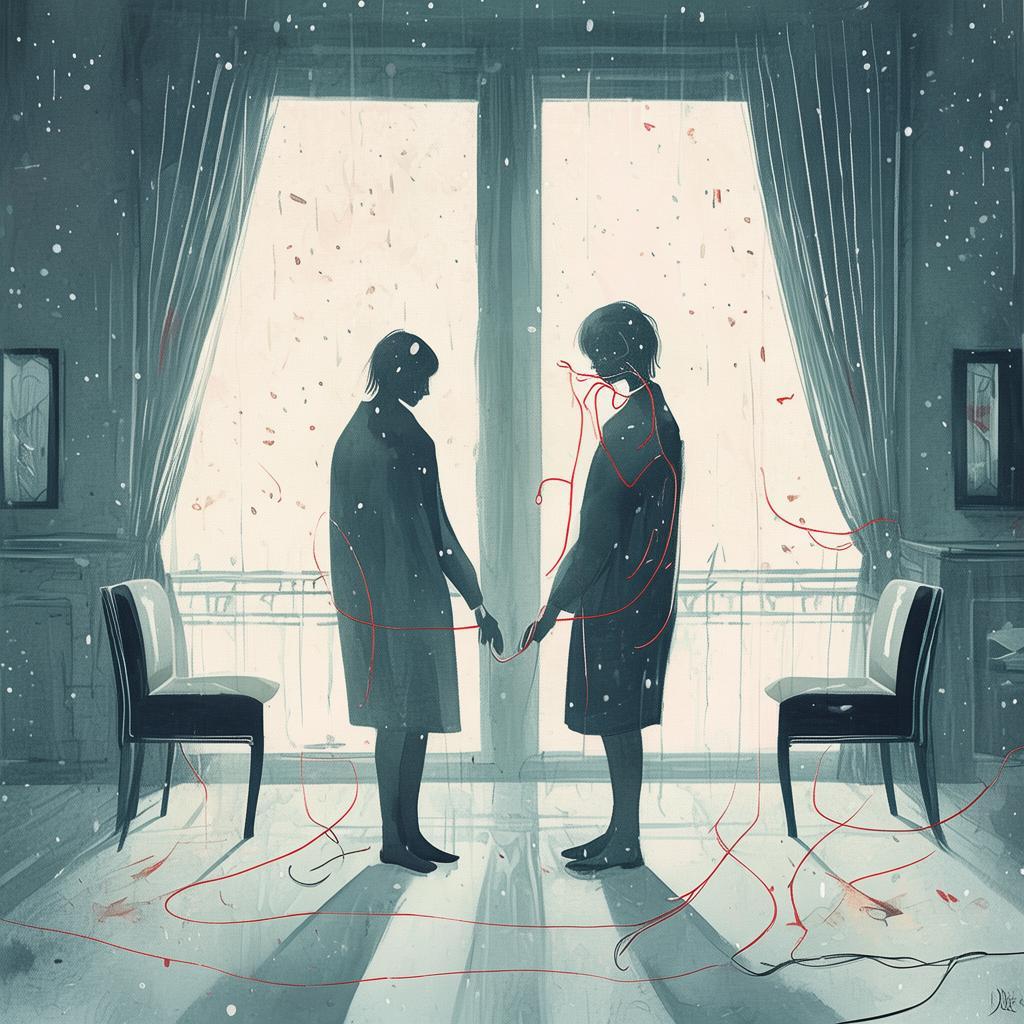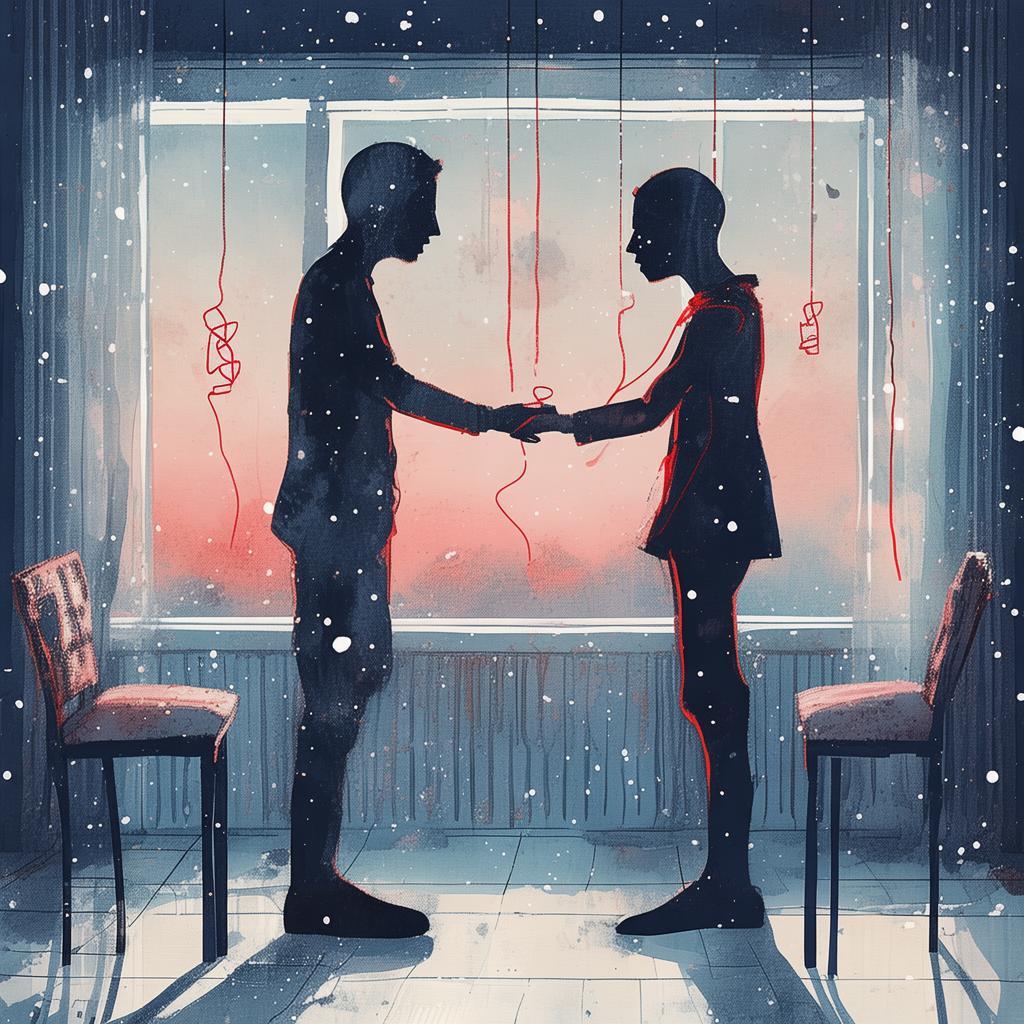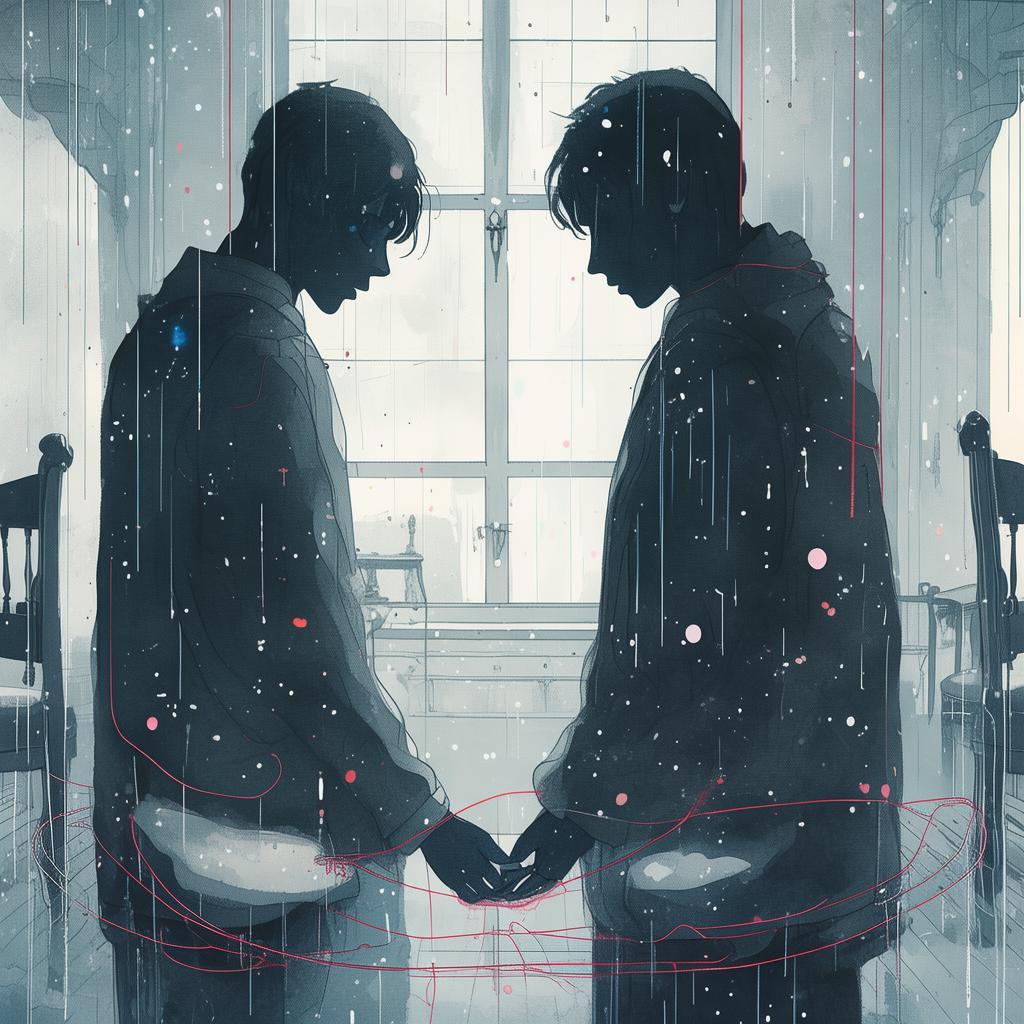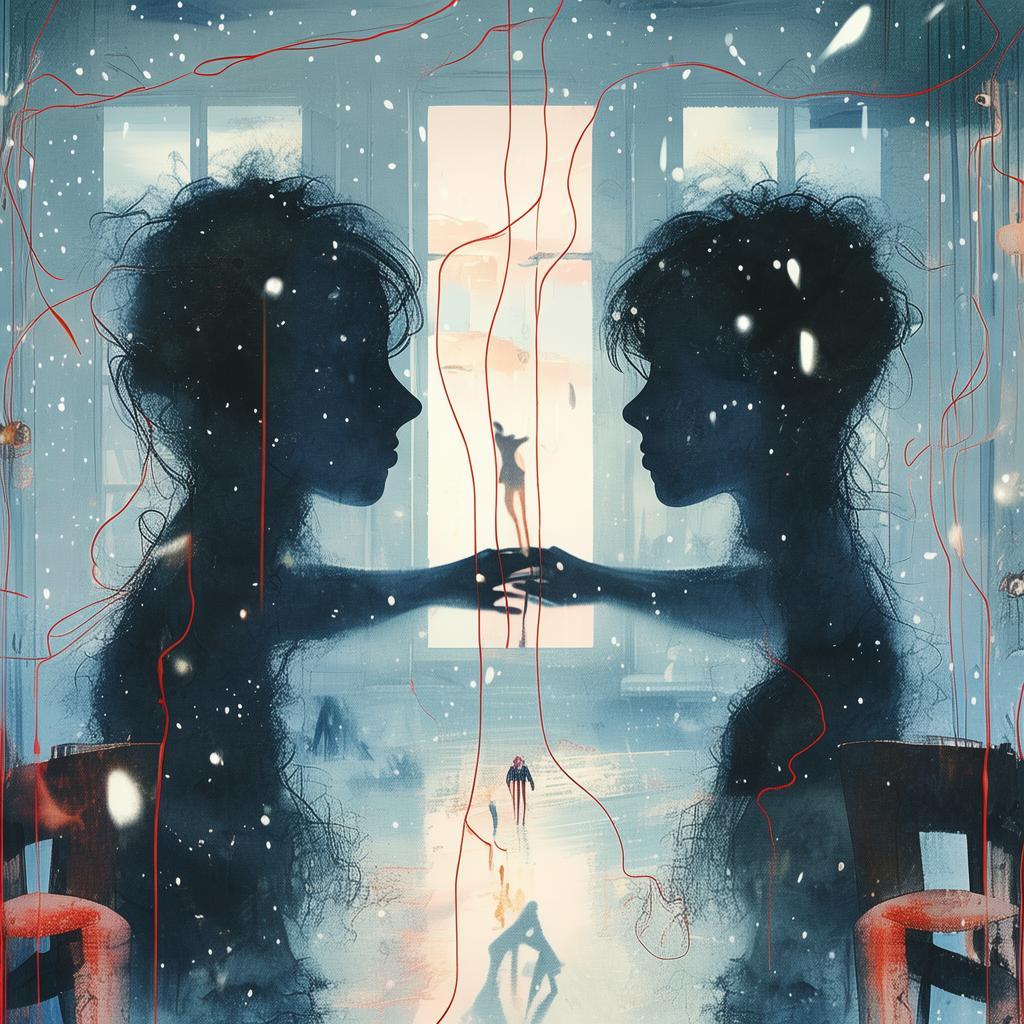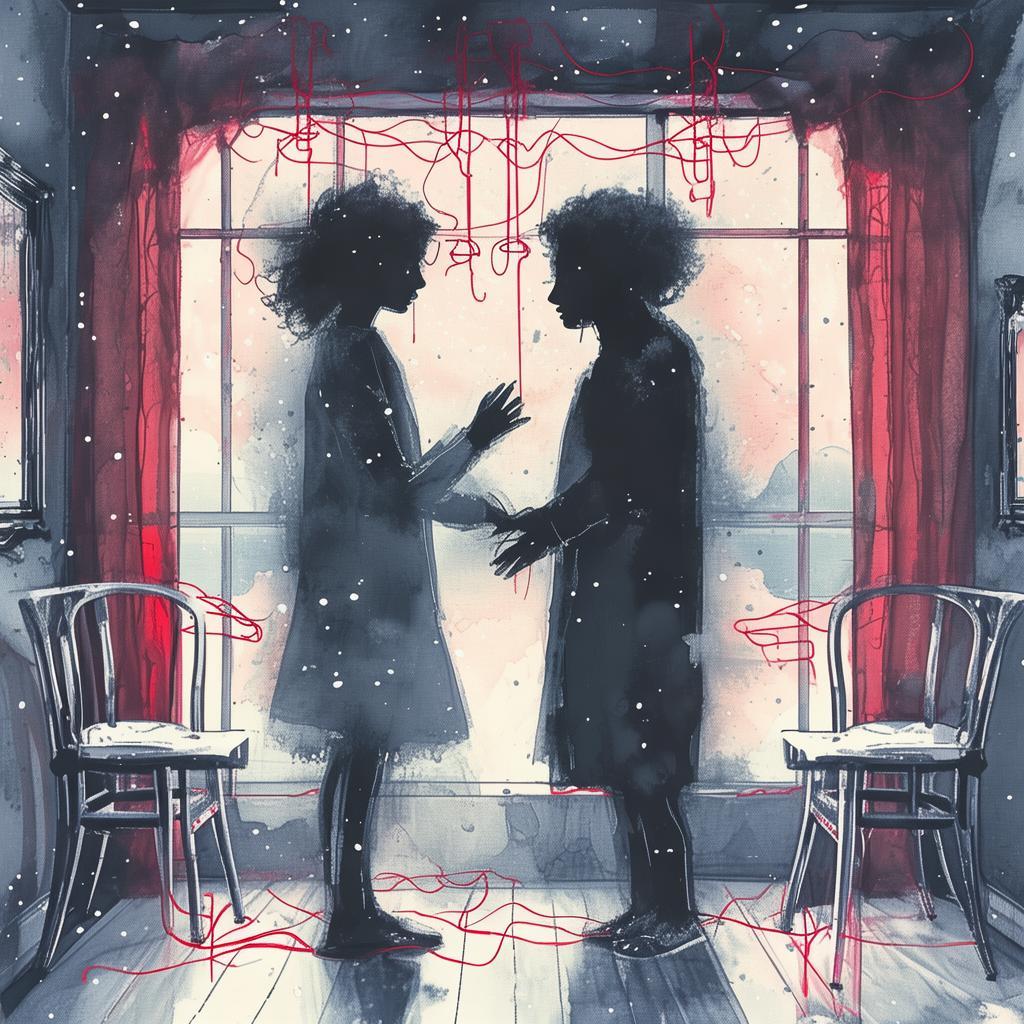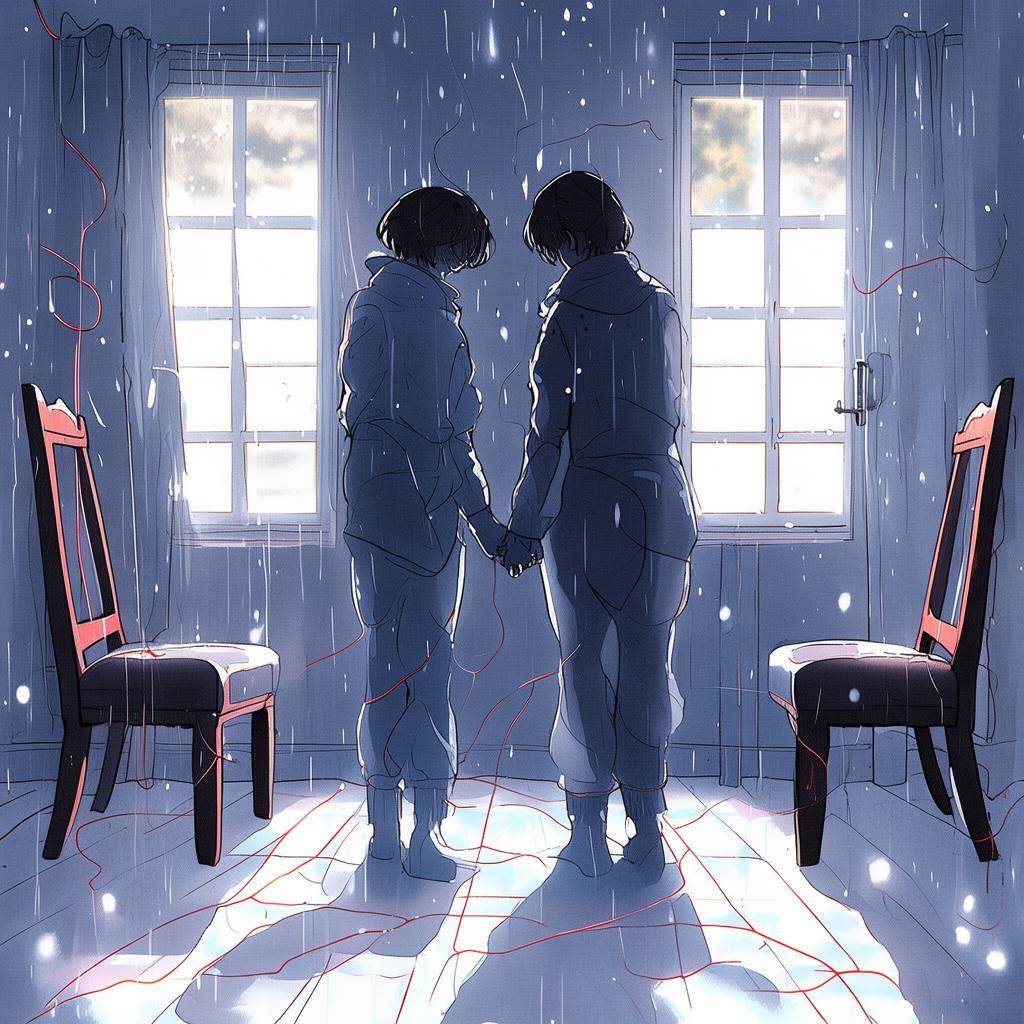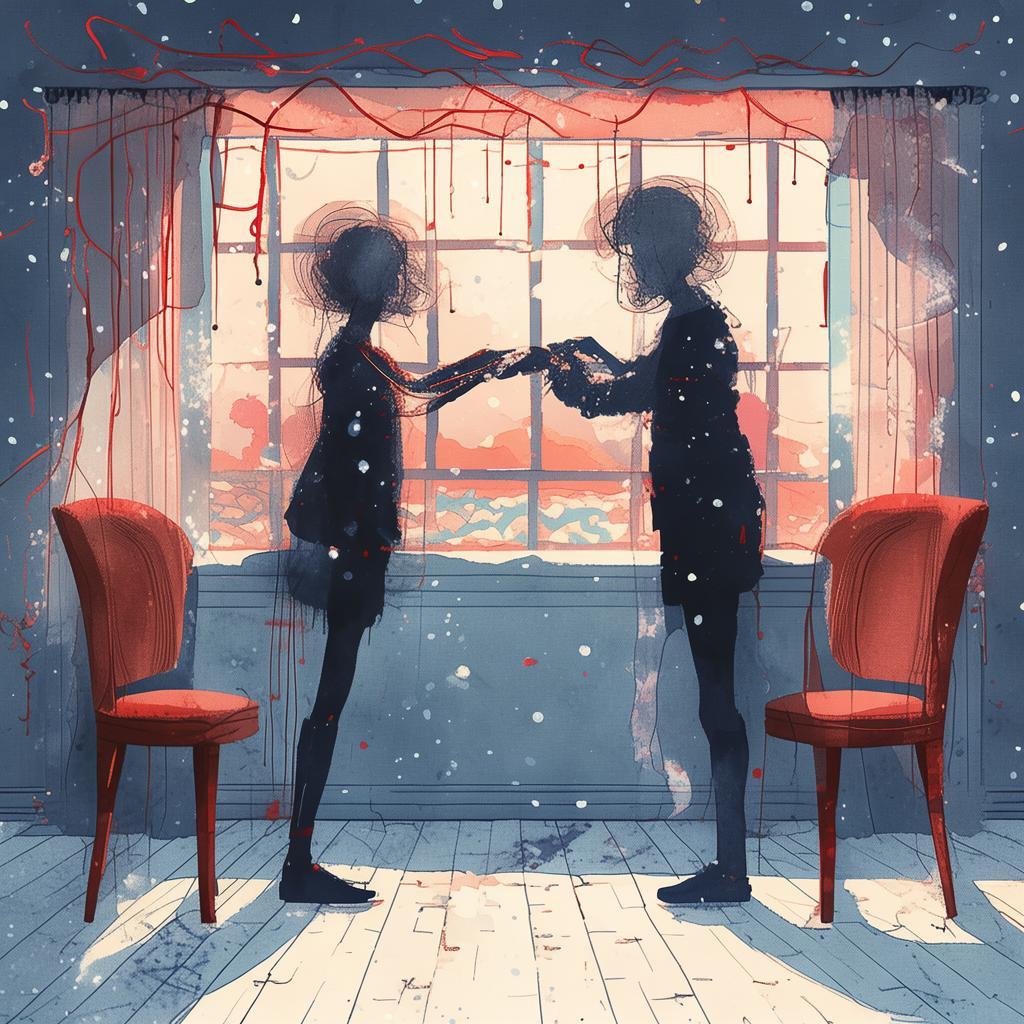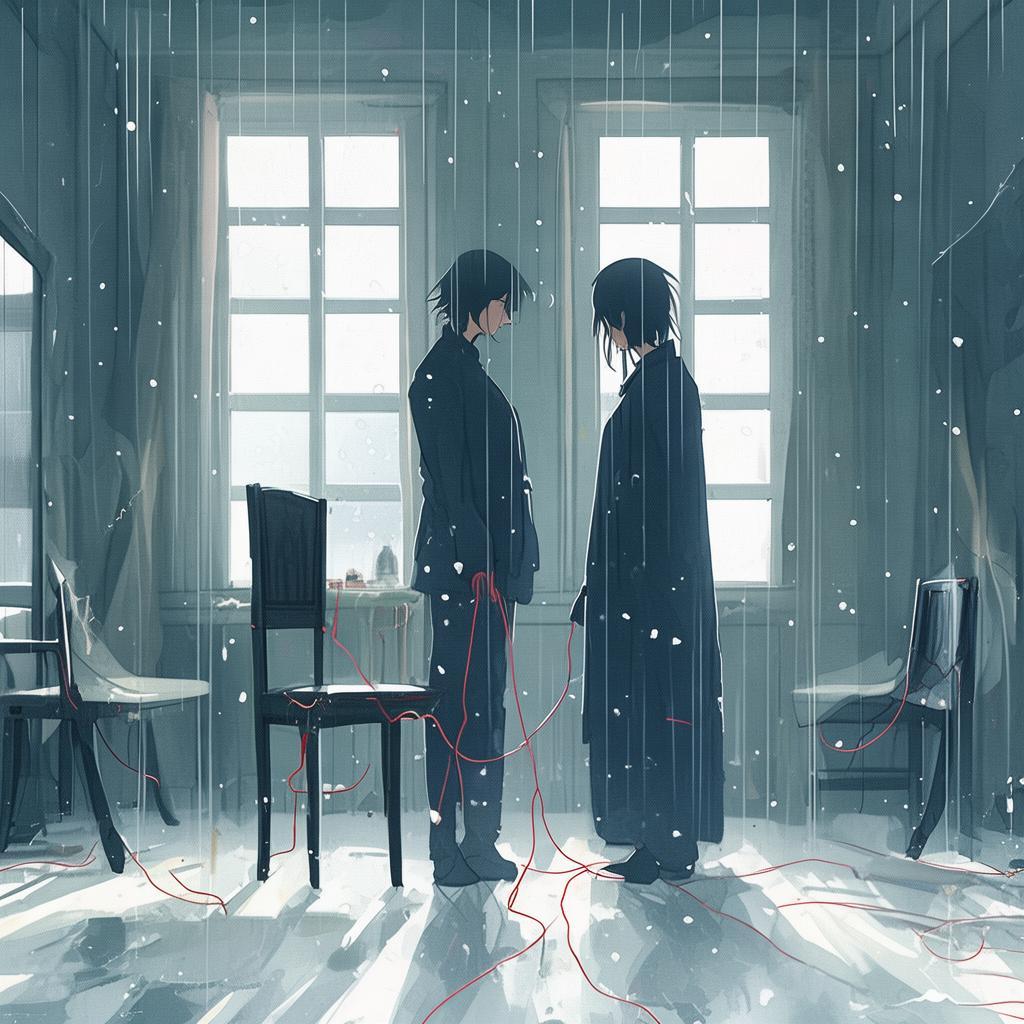The Silent Symphony of Sorrow
The air in the dimly lit room was heavy with the scent of aged parchment and the faint echo of an ethereal melody. Zhang Liang, a renowned violinist with a soulful expression and a past riddled with shadows, was ensconced in the velvet embrace of his chair, the strings of his violin held poised and still. The room was silent, save for the distant hum of the city, a whisper that seemed to taunt the solitude that had become his companion.
The broadcast had come out of nowhere, a chilling symphony of sorrow that resonated in his mind like a physical ache. It was a voice, not unlike his own, though with a resonance that suggested it belonged to a different person—a man he had lost touch with years ago, a man whose love had become as silent as the night.
"The Silent Symphony of Sorrow," the voice had whispered, and it had felt like a premonition, a warning that echoed in his bones.
Liang's hands, usually the maestro of his instrument, were now frozen in place, his mind a whirlwind of memories. He had loved that man deeply, but their paths had diverged in the crucible of fate. He had sought to escape the past, to let it fade into the ether, but now, the broadcast was a siren call, pulling him back to the abyss from which he had tried to emerge.
Determined to unravel the mystery, Liang set out to uncover the source of the broadcast. His first clue was the melody, haunting and beautiful, yet laced with a bittersweet sorrow. It was the song they had performed together, a piece of music they had dedicated to the memory of their love—a love that had never found its place in the world.
The search led him to an old, forgotten concert hall, its grandiose facade a stark contrast to the desolation within. It was here that they had played their last concert, a final performance that had ended in tragedy. The hall was a relic of the past, a mausoleum for the love they had once shared.
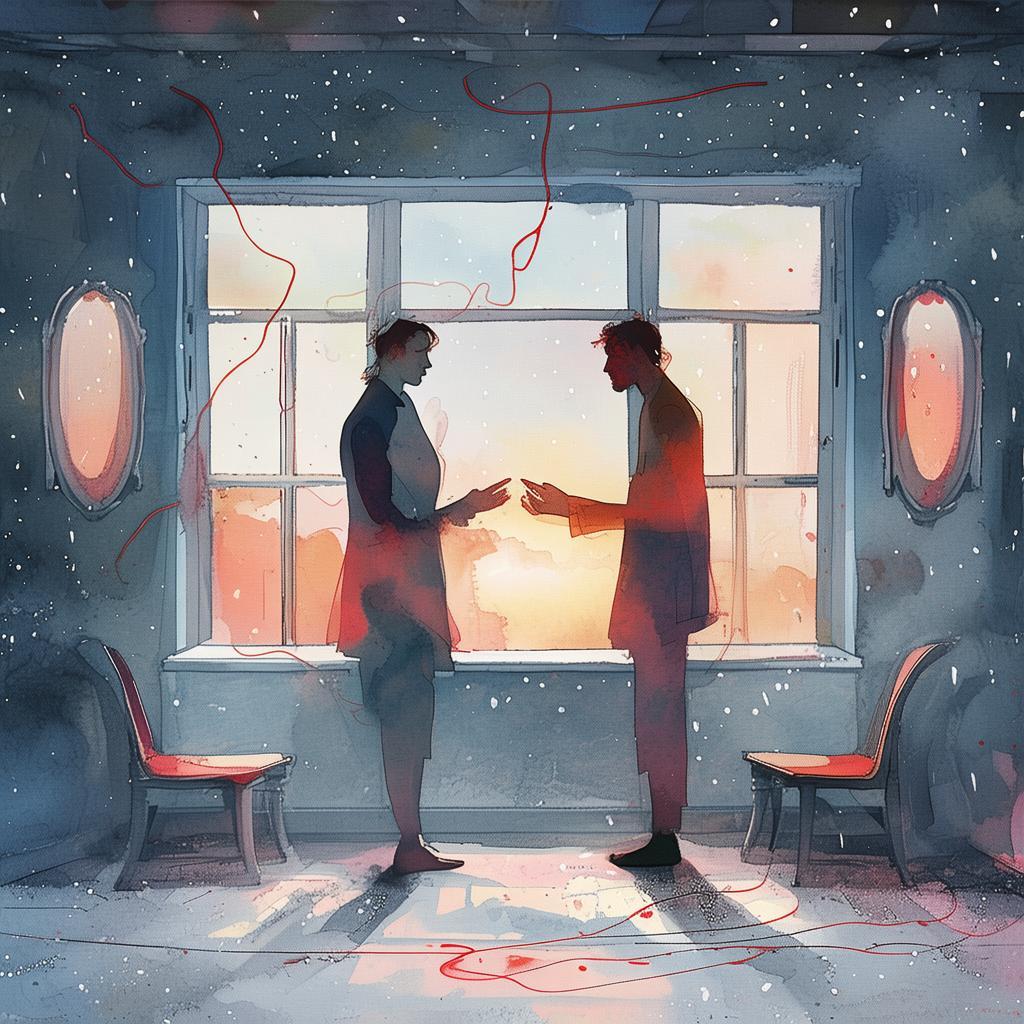
In the depths of the concert hall, Liang found an old, dusty tapestry. As he unfolded it, a set of notes emerged from the fabric, their edges worn and tattered by time. They were the same notes from the broadcast, the notes that had haunted his mind. He knew then that the tapestry was a clue, a bridge to the past.
He traced the notes, and as he did, the tapestry began to unravel, revealing a hidden chamber within the concert hall. In this chamber, he discovered a locked box, the key lying on a velvet cushion beside it. The key was a violin bow, its string still taut with the memory of touch.
With trembling hands, Liang unlocked the box. Inside, he found a collection of letters, each one a piece of the puzzle that was his past. The letters spoke of a man who had loved him fiercely, who had watched him from afar as he built his life in the spotlight, never daring to hope that their love could be mended.
As he read, Liang learned of the man's suffering, of his attempts to reach out through the broadcast, of his desire for reconciliation. The letters revealed a love that had been forbidden, a love that had never seen the light of day.
Tears stung Liang's eyes as he realized the truth: the man had not been a ghost or a figment of his imagination, but a real person, someone who had loved him deeply and never given up on them.
The revelation shattered Liang's self-imposed solitude. He knew then that he could not run from his past. He had to confront the man he had lost, to give them both closure and a chance at a new beginning.
Liang's journey took him to the edge of the city, where the man he loved still lived. As he approached the house, his heart raced with a mixture of fear and anticipation. He rang the bell, and as he waited, the broadcast played once more, this time not from the distance but from within the house itself.
The door opened, and there, standing before him, was the man he had lost. The years had taken their toll, but his eyes were the same—filled with love and the pain of separation.
They spoke of the years apart, of the love that had withered but never died. They spoke of forgiveness and of a future that they could build together. In that moment, Liang realized that the broadcast was not just a mystery to be solved; it was a sign that love had a way of transcending time and space.
The two men embraced, their tears mingling as they found solace in each other's arms. The love they had once shared was not a memory to be forgotten; it was a symphony, a silent song of sorrow that had brought them back to one another.
And so, Liang returned to the concert hall, not to play music but to honor the love that had sustained them through the darkness. He performed a new piece, one that was dedicated to their love and the love that would never fade.
The world watched in awe, their hearts touched by the music and the story that had unfolded within the concert hall. For in that space, the silent symphony of sorrow had become a song of redemption, a melody that had the power to heal and transform.
And in that healing, Liang and the man he had lost found the peace they had sought, the love that had always been there, waiting for them in the silence of their shared past.
✨ Original Statement ✨
All articles published on this website (including but not limited to text, images, videos, and other content) are original or authorized for reposting and are protected by relevant laws. Without the explicit written permission of this website, no individual or organization may copy, modify, repost, or use the content for commercial purposes.
If you need to quote or cooperate, please contact this site for authorization. We reserve the right to pursue legal responsibility for any unauthorized use.
Hereby declared.
